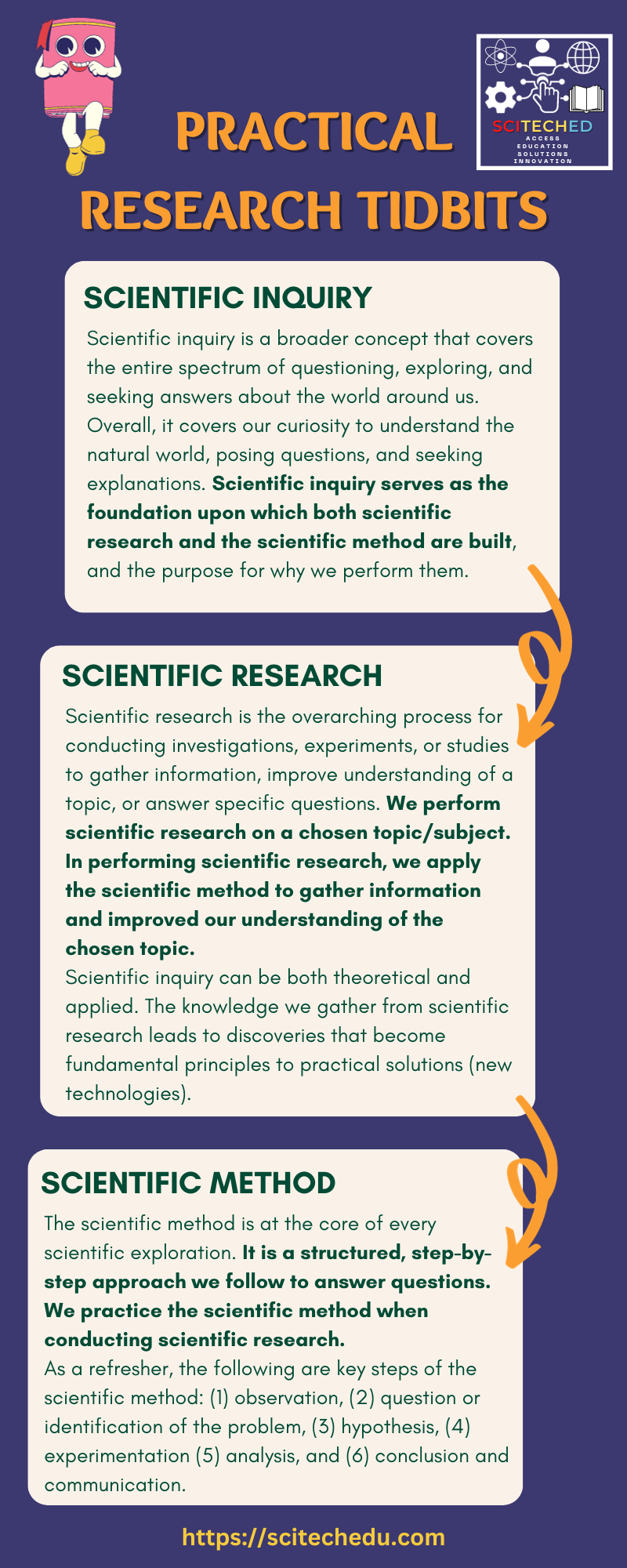Scientific Method, Scientific Research, and Scientific Inquiry - Are they different from one another?
Ever wondered how the scientific concepts we learned in school came about? Pursuit of scientific knowledge involves systematic processes to understand the world around us. At some point, some of us will have come across the terms scientific method, scientific research, and scientific inquiry. Most of us use these terms interchangeably but are they really the same fundamental concepts? In this article, we will define and unpack these concepts and highlight their key differences, and create clarity on how these processes enable our pursuit of knowledge.
Scientific Method. Let’s start with the most basic process among the three. The scientific method is at the core of every scientific exploration. As defined in our General Science classes, it is a structured, step-by-step approach we follow to answer questions. The scientific method is the basis for how we conduct research. As a refresher, the following are key steps of the scientific method: (1) observation, (2) question or identification of the problem, (3) hypothesis, (4) experimentation (5) analysis, and (6) conclusion and communication.
For a deep dive into the scientific method, please check SciTechEd’s blog article: What you need to know: The Scientific Method Students Practice in School is the Same Scientific Method Scientists Perform — SciTechEd: Access. Education. Solutions. Innovation. (scitechedu.com)
Scientific Research. Scientific research is the overarching process for conducting investigations, experiments, or studies to gather information, improve understanding of a topic, or answer specific questions. It encompasses a wide range of disciplines and approaches, from chemistry and physics to astronomy, sociology and psychology.
We employ the scientific method while conducting scientific research. However, it is important to highlight that scientific research extends beyond the confines of the laboratory. It can be both theoretical and applied. The knowledge we gather from scientific research leads to discoveries that become fundamental principles to practical solutions (new technologies).
Scientific Inquiry. Scientific inquiry is a broader concept that encompasses the entire spectrum of questioning, exploring, and seeking answers about the world around us. Overall, it covers our curiosity to understand the natural world, posing questions, and seeking explanations. Scientific inquiry serves as the foundation upon which scientific research and the scientific method are built, and purpose for why we perform them.
In summary, the scientific method, scientific research, and scientific inquiry are interconnected processes in our pursuit of knowledge. While the scientific method provides a systematic approach to answering questions, scientific research employs the scientific method in exploring various fields and disciplines, and scientific inquiry covers inherent human curiosity to understand the world and solve challenges. Altogether, these concepts enable us to demystify the universe, advance our collective knowledge and solve the world’s grand challenges.







